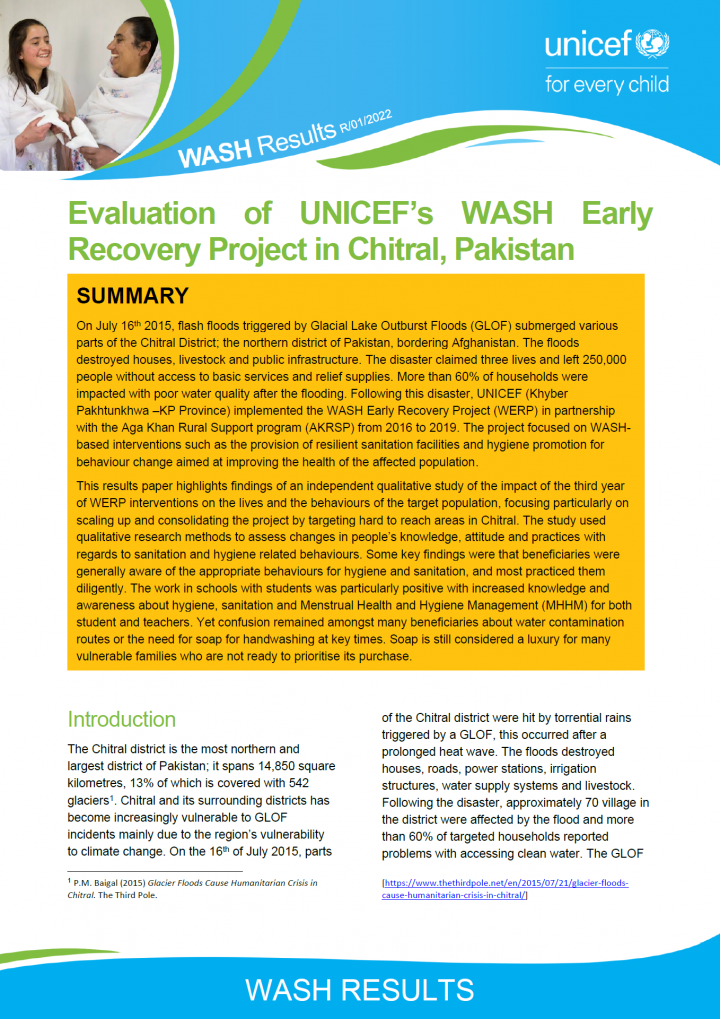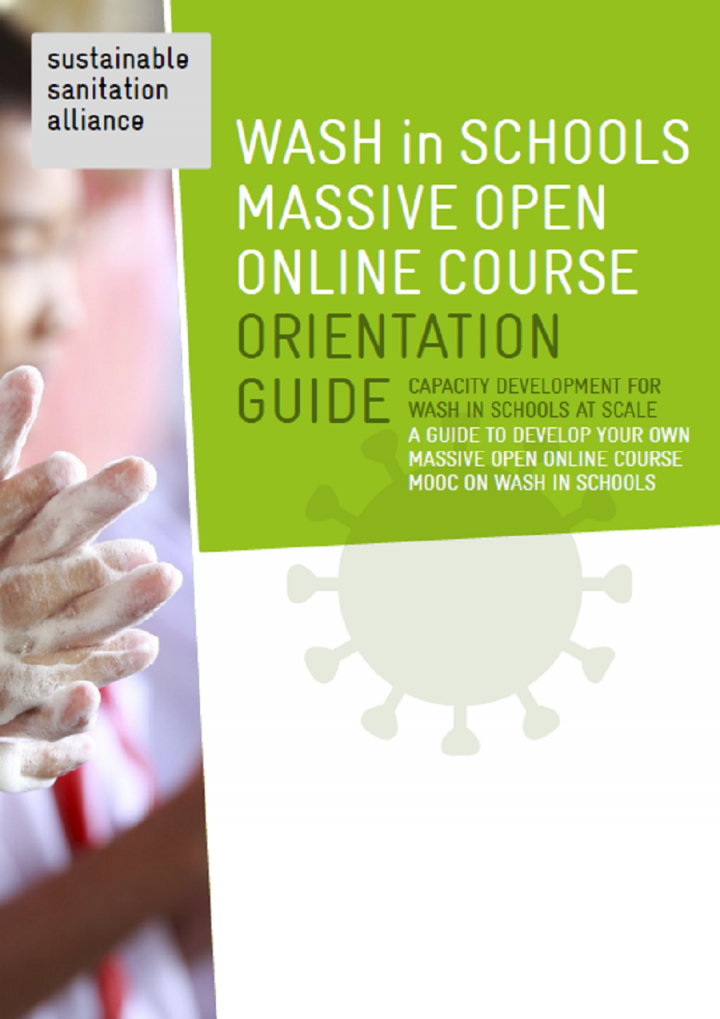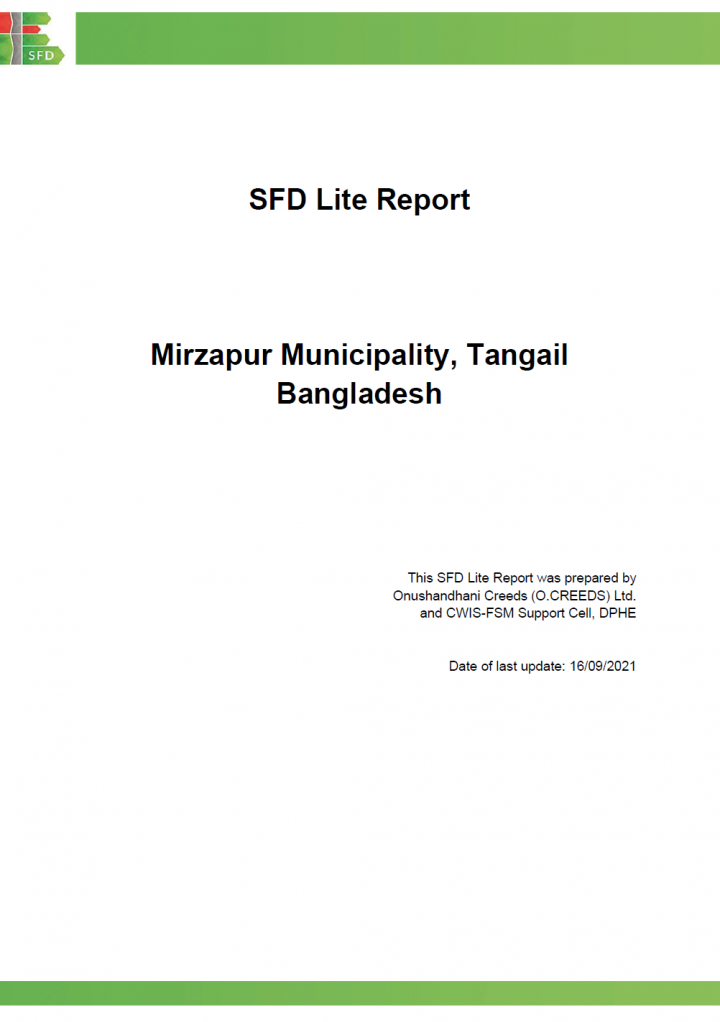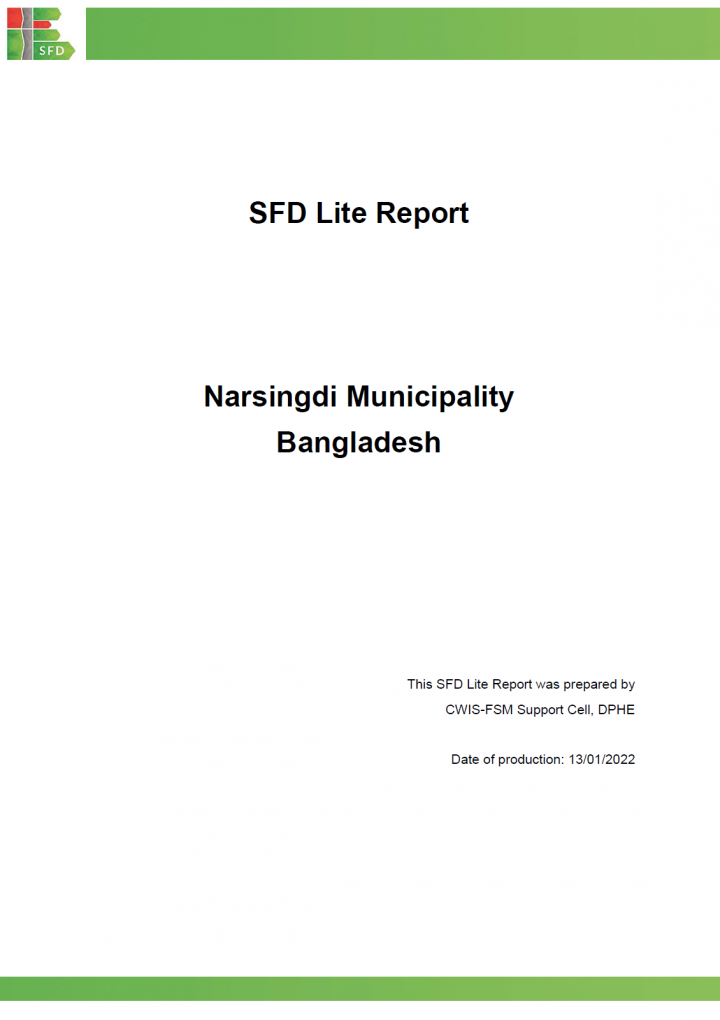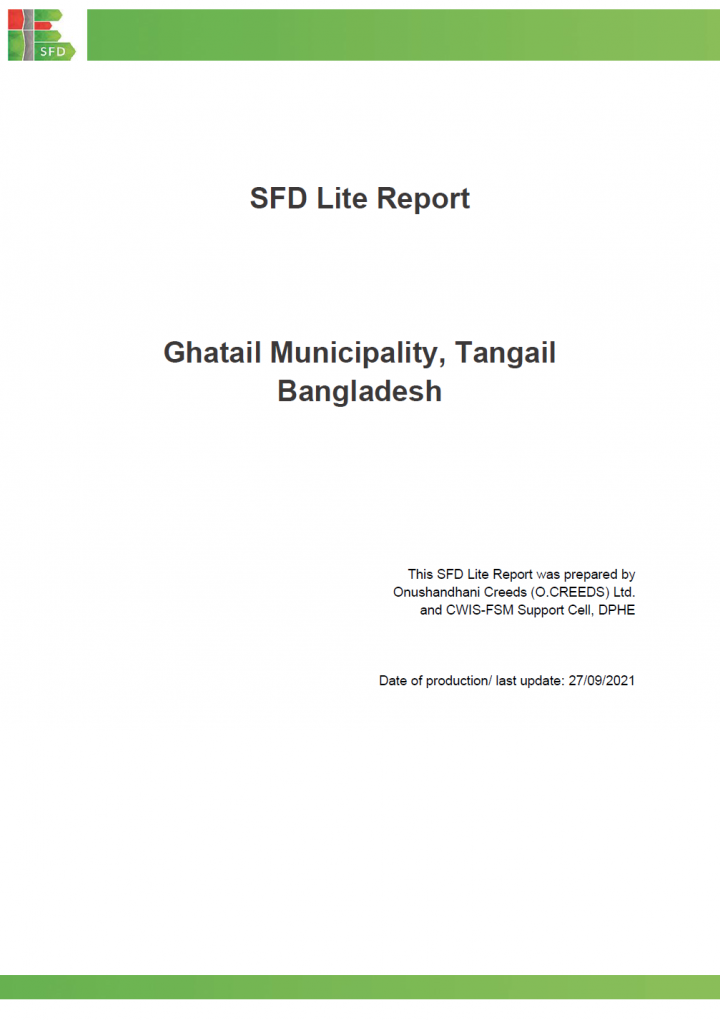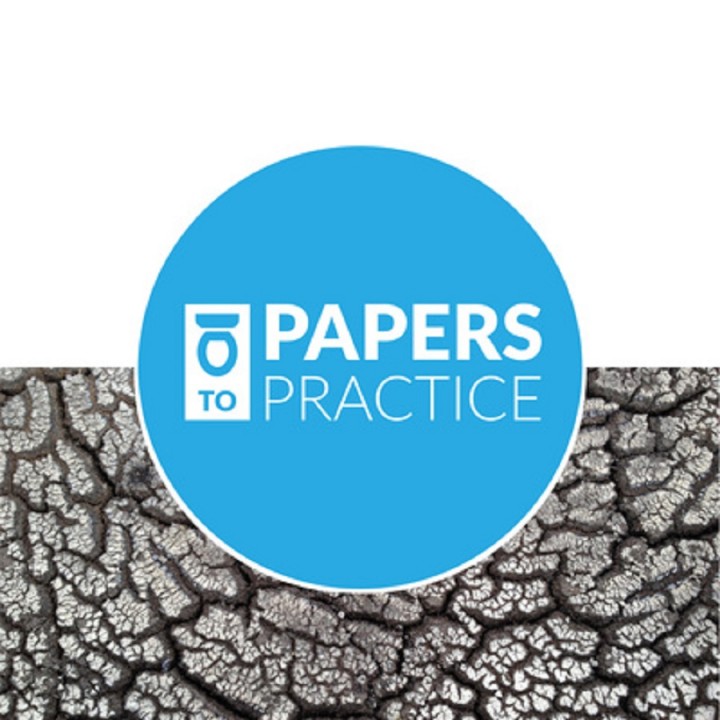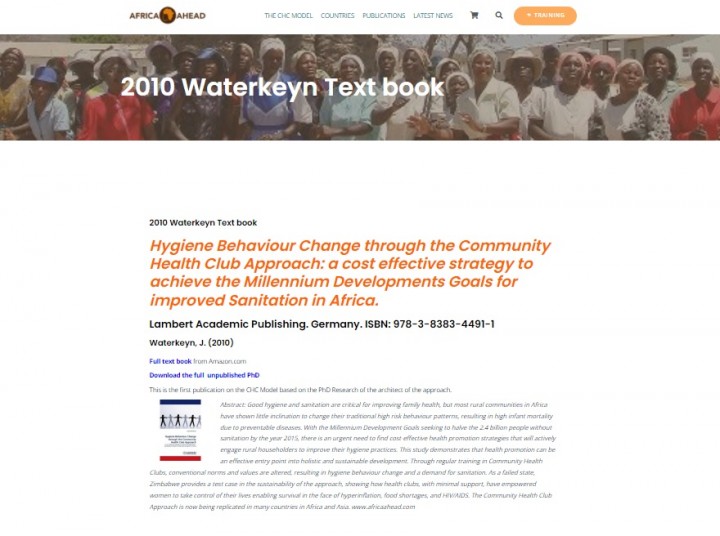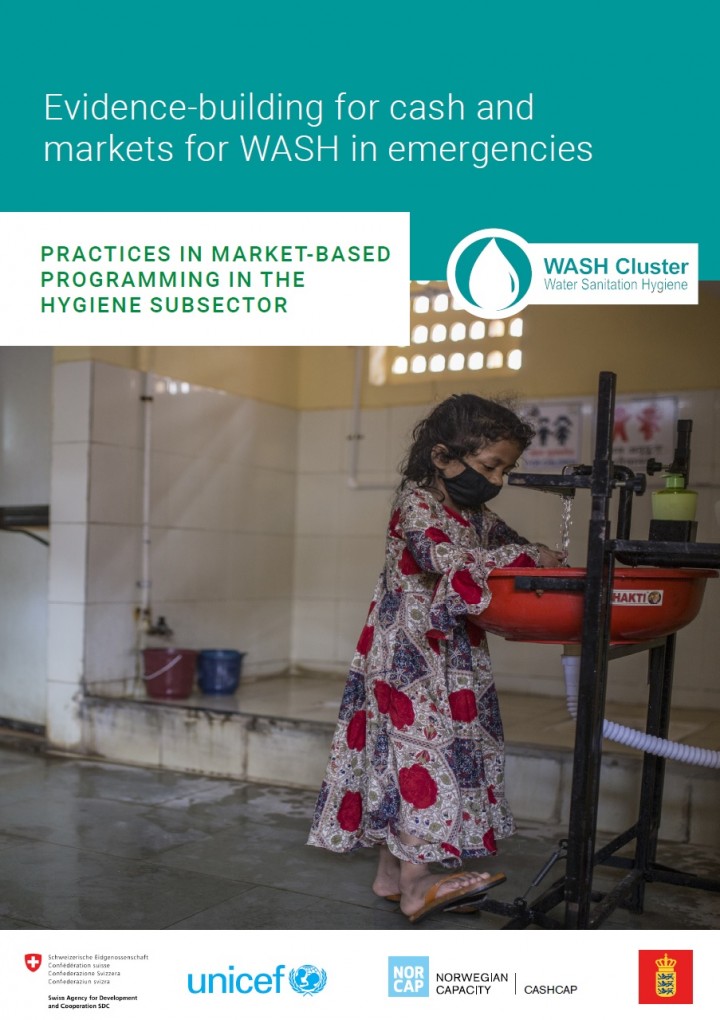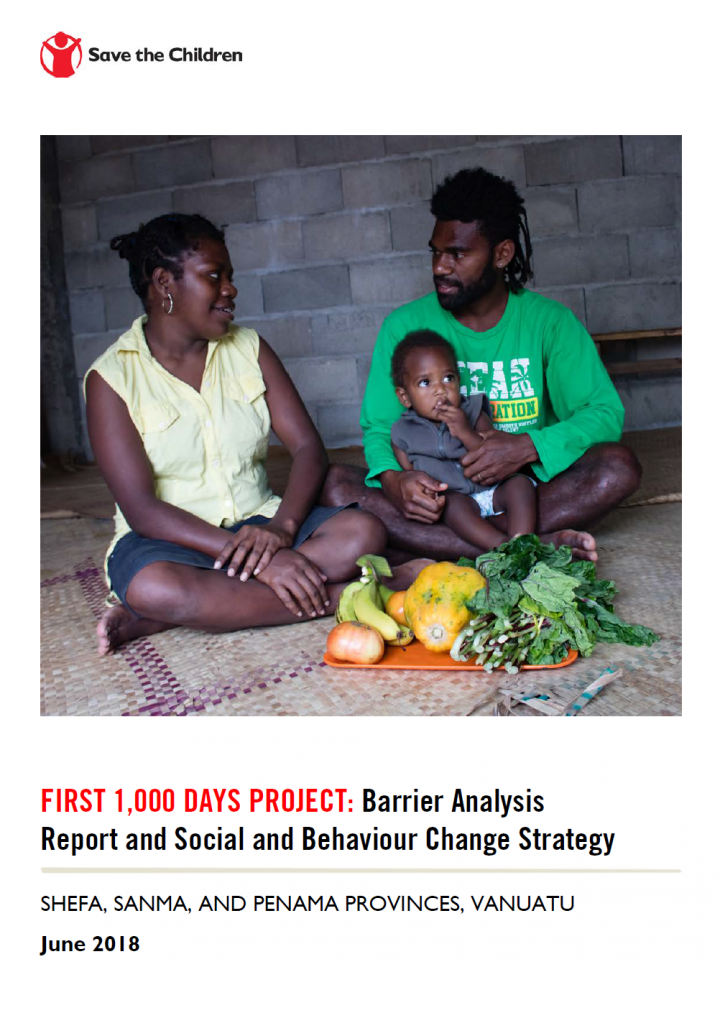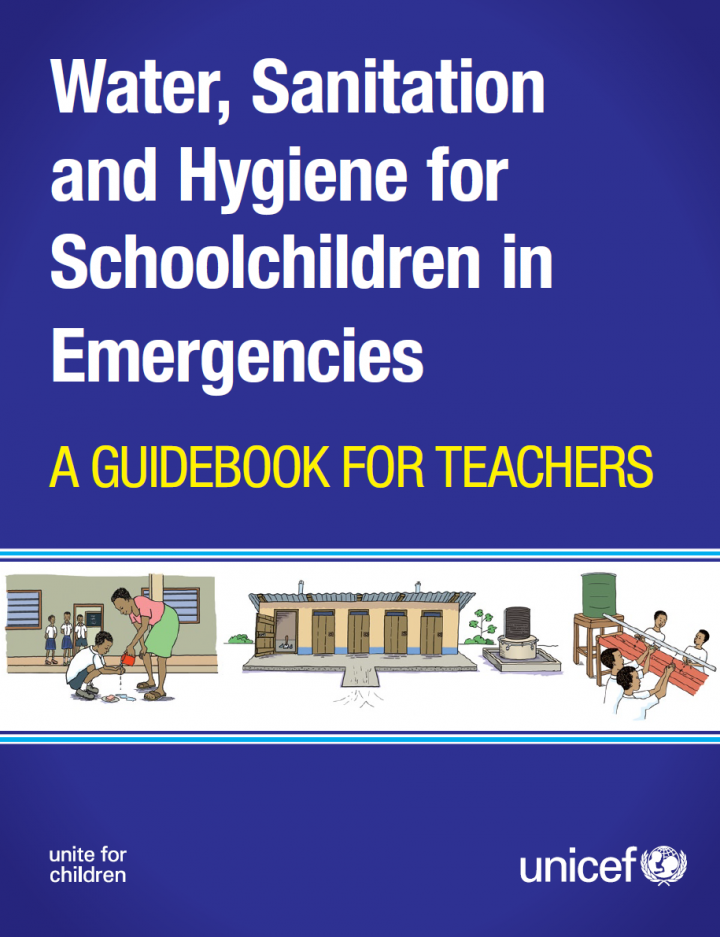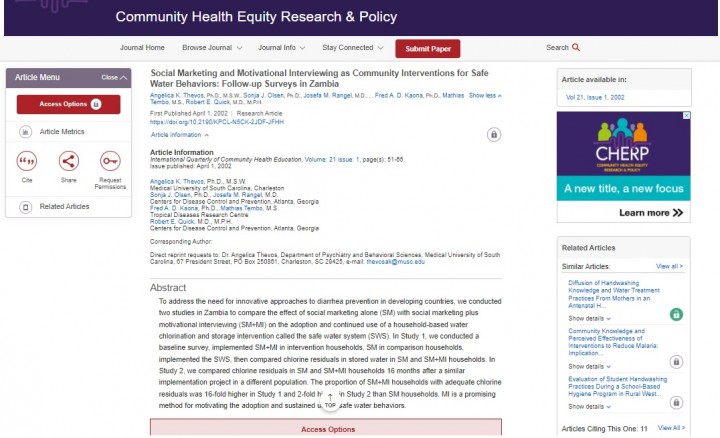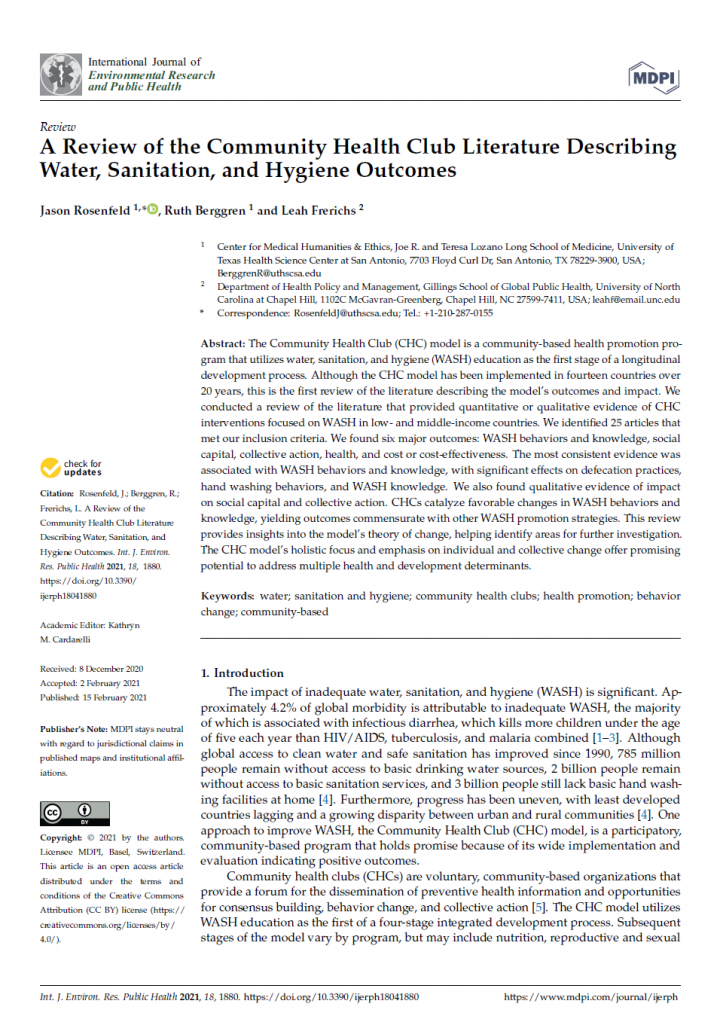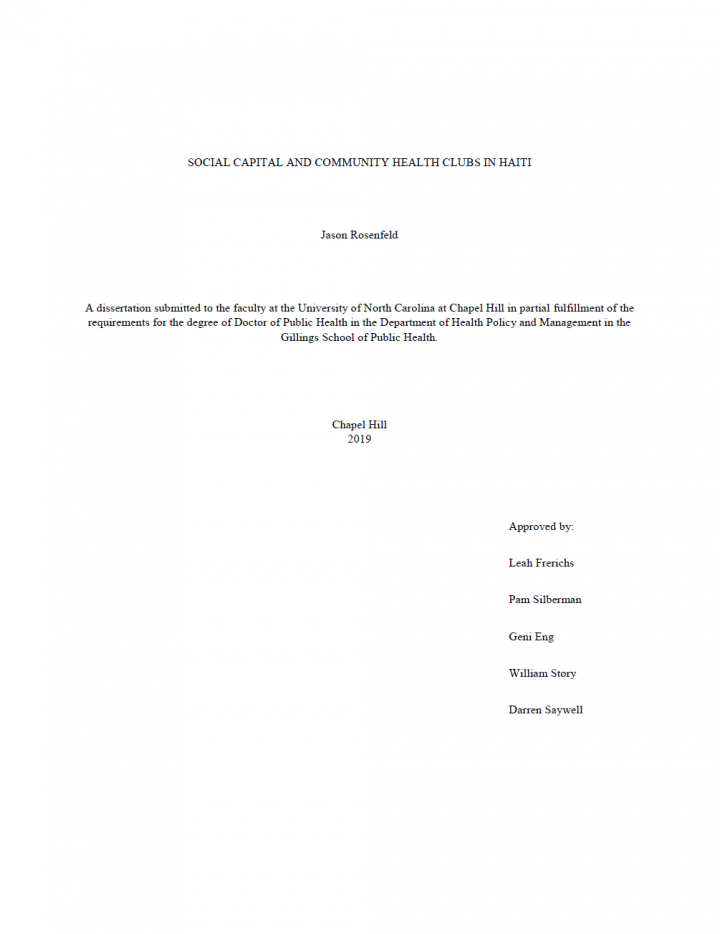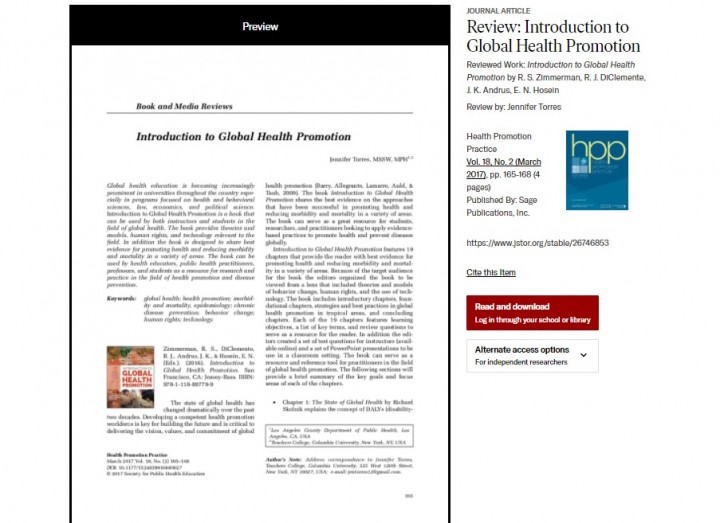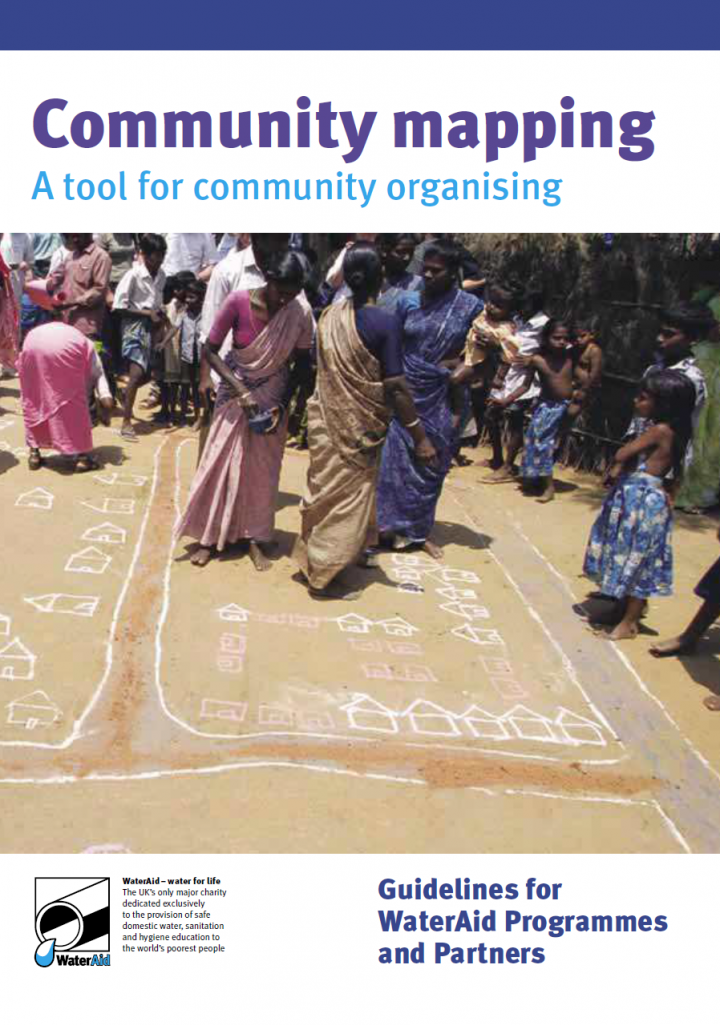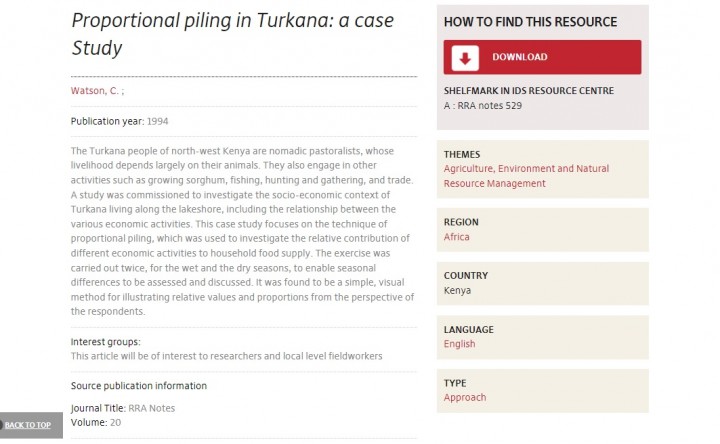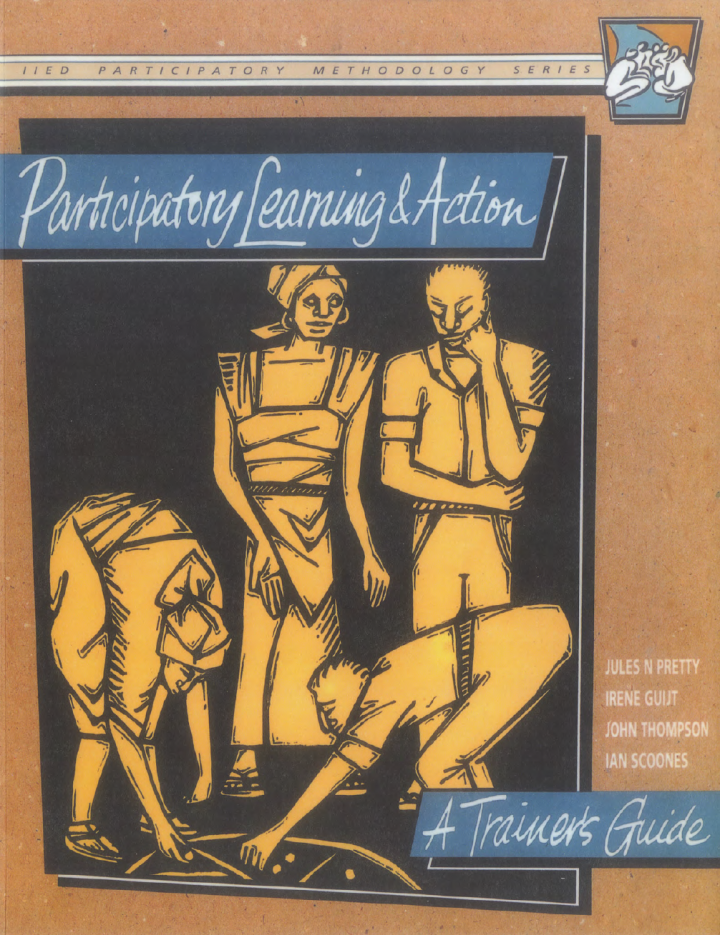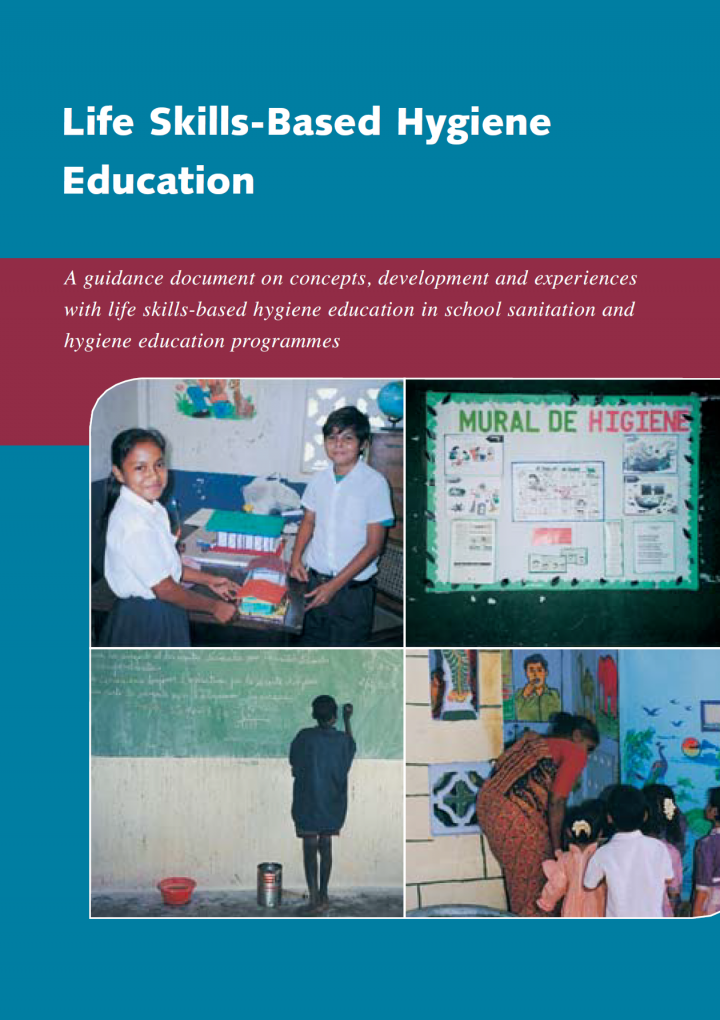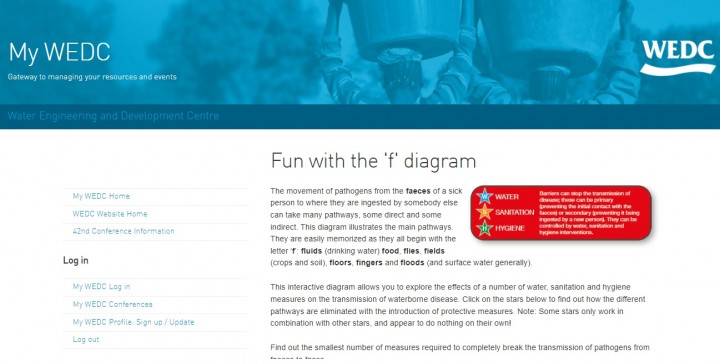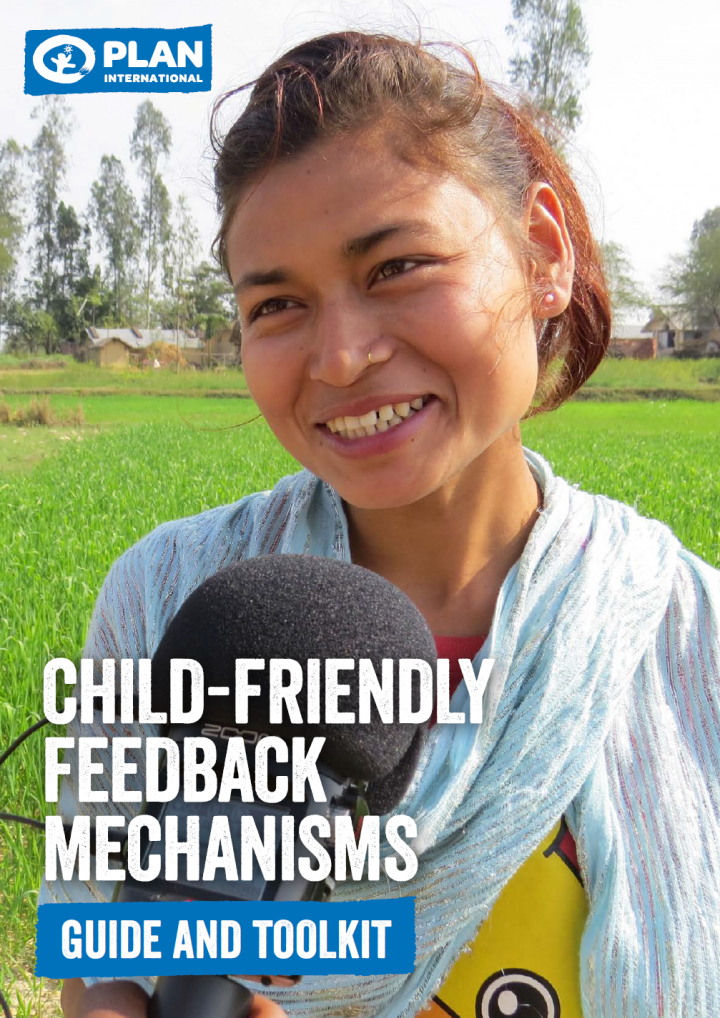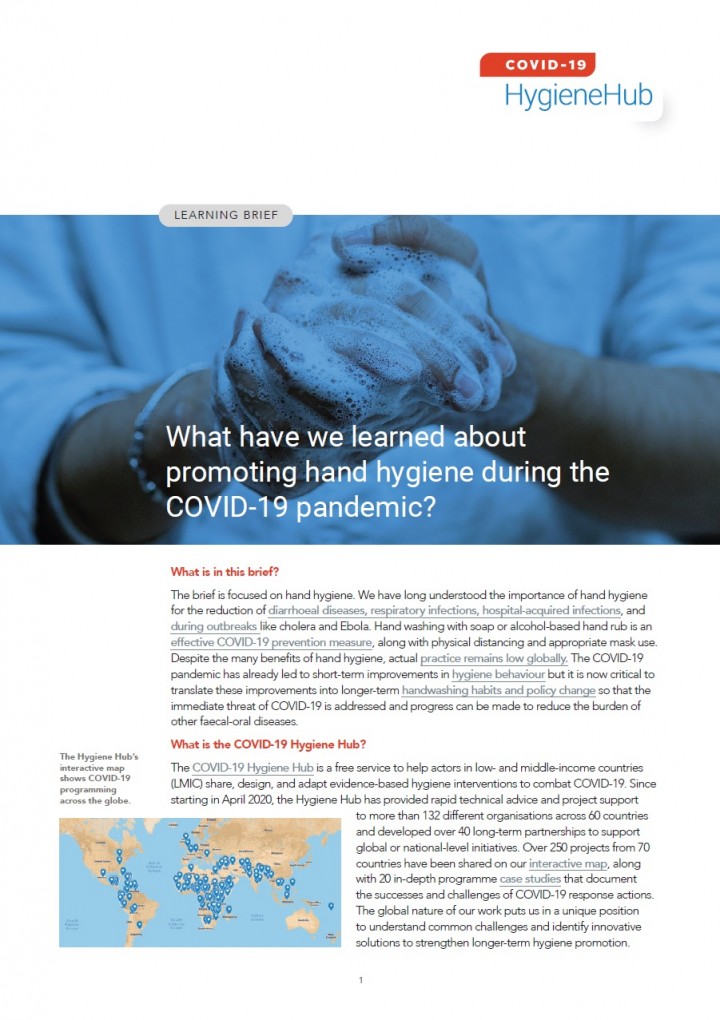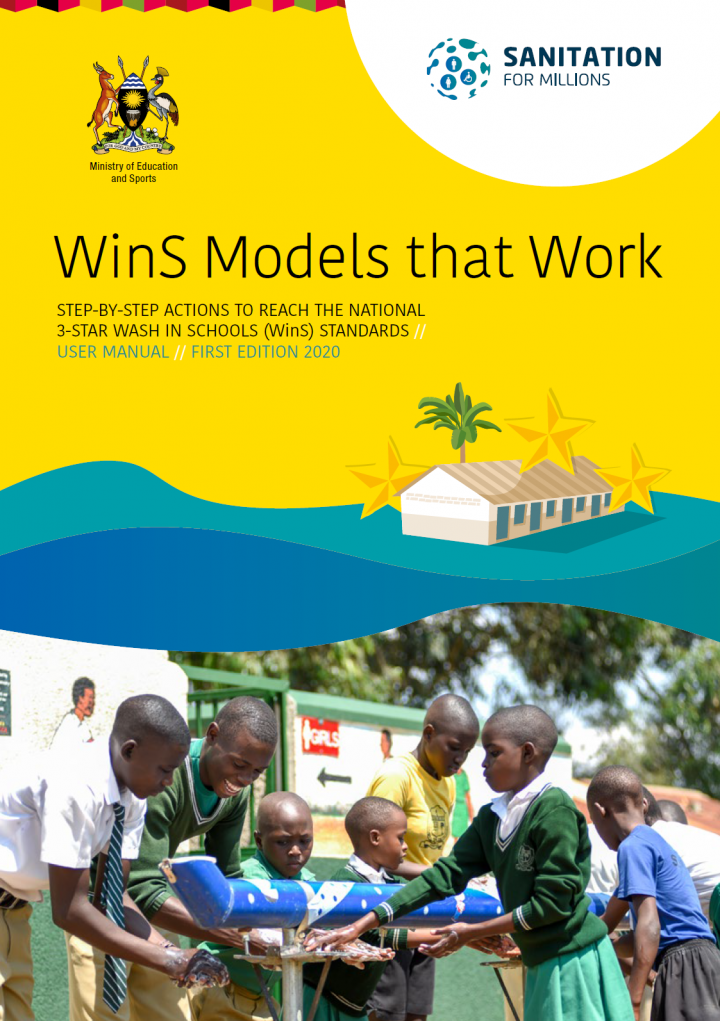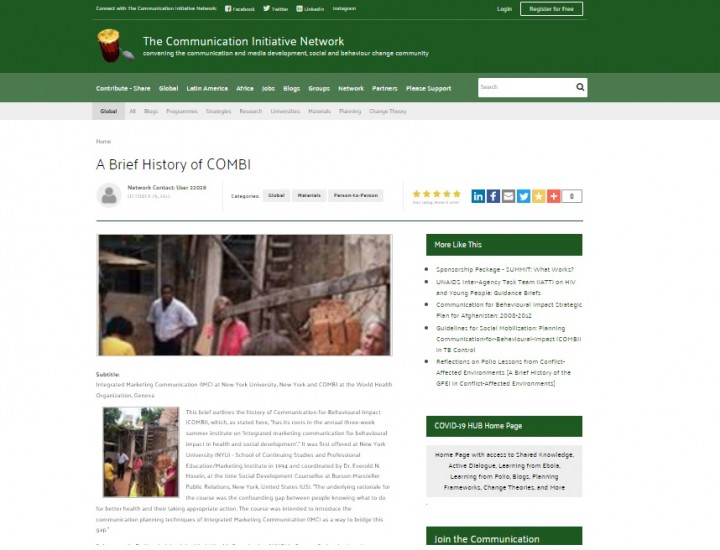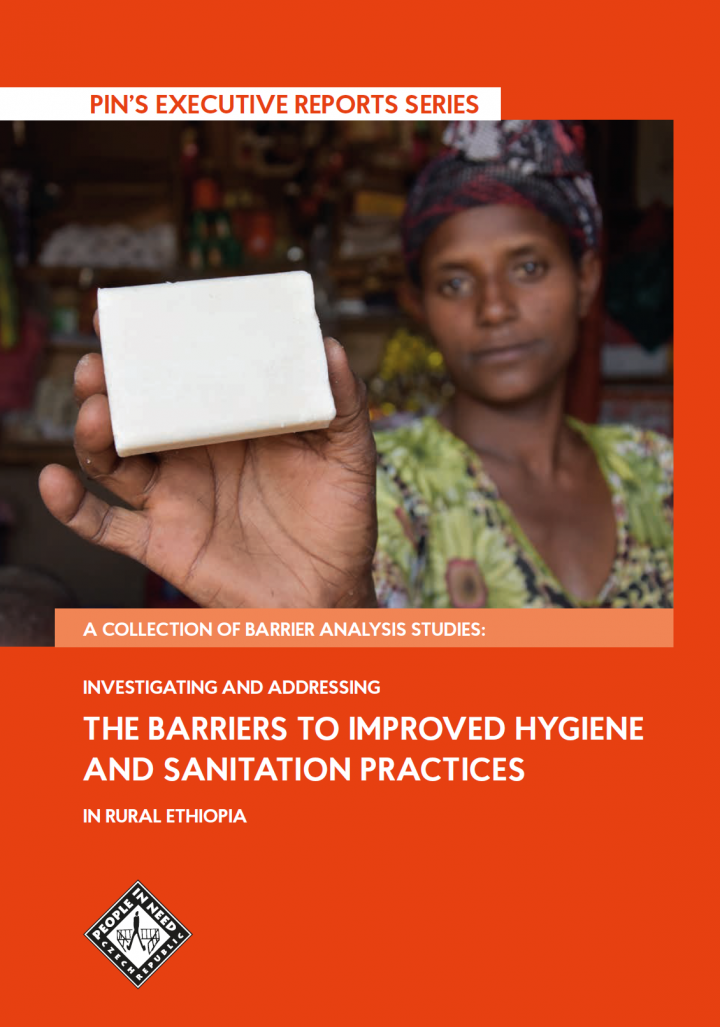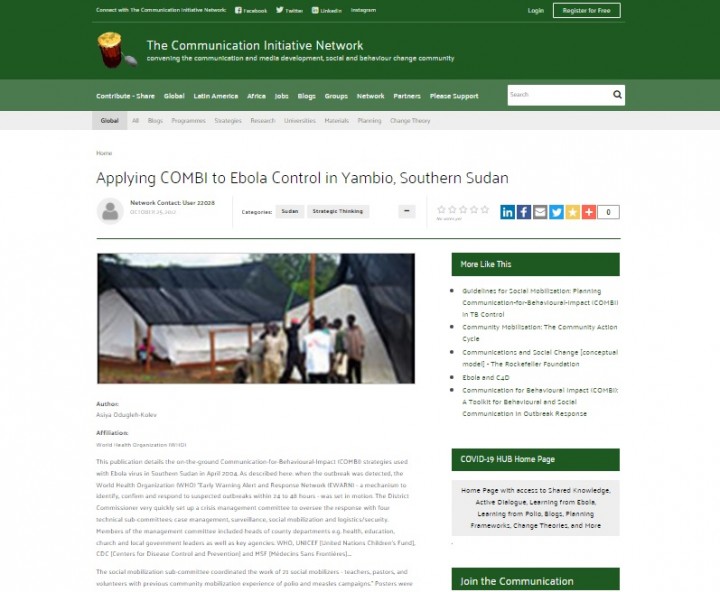Searching for information on Sanitation Workers?
The Sanitation Workers Knowledge + Learning Hub is the best source for all current news, trends, articles and updates on sanitation workers rights around the world.
On July 16th 2015, flash floods triggered by Glacial Lake Outburst Floods (GLOF) submerged various parts of the Chitral District; the northern district of Pakistan, bordering Afghanistan. The floods destroyed houses, livestock and public infrastructure. The disaster claimed three lives and left 250,000 people without access to basic services and relief supplies. More than 60% of households were …
This guide will provide insights on preconditions and principles for developing a national WinS MOOC based on the Philippines’ WinS MOOC experience, practical examples on structure, content and course outline of a typical WinS MOOC, and recommendations for adapting these processes in your institution’s context.
Mirzapur municipality is one of the commercially significant towns under the Tangail District in Bangladesh. It is located about 54 Km northeast of Dhaka, the capital of Bangladesh. It has an administrative area of about 8.58 sq. km. There are 9 wards in Mirzapur municipality.
According to the population census in 2011 by the Bangladesh Bureau of Statistics (BBS), the population of Mirzapur …
Narsingdi municipality stands on the bank of the Branch of the River Meghna and is located adjacent to the Dhaka-Sylhet National Highway and 57 km East of the capital city Dhaka. It is well connected with road, water, and railways. The city is well known for its small and medium industries, like textile mills, dyeing mills, agro-industries and other processing mills which are the remarkable …
Ghatail Municipality is a sub-district town of Ghatail Upazilla under Tangail District, which is located about 33 Km North of Tangail Sadar Upazila and 114 Km northwest of Dhaka City. It is directly linked with the Dhaka-Tangail highway. The municipality is crossed over by Jhinai River. Ghatail beel (wetland) is another main water body beside the town. According to the population census in 2011 …
A series where we take important sanitation-related publications and break them down in 30 minutes, making them more accessible to busy professionals working to deliver inclusive, safely managed sanitation services globally. We sit with authors and ask them who should know about the paper and what are the key points to be able to put these papers to practice. This series is co-hosted by CAWST & …
Good hygiene and sanitation are critical for improving family health, but most rural communities in Africa have shown little inclination to change their traditional high risk behaviour patterns, resulting in high infant mortality due to preventable diseases. With the Millennium Development Goals seeking to halve the 2.4 billion people without sanitation by the year 2015, there is an urgent need …
This report presents an overview of practices related to the use of market support and cash and voucher assistance (CVA) modalities for hygiene in humanitarian crises. These market-based approaches can have a number of advantages, such as improving the efficiency and effectiveness of emergency hygiene response while also supporting the existing local market systems that will continue to deliver …
WASH in Schools aims to support the provision of safe drinking water and improved sanitation facilities, and promotes lifelong health for children and their families. Ensuring access to water, sanitation and hygiene (WASH) in every school for every child can be a huge challenge, especially during emergencies. When disaster strikes, education is often disrupted as families become primarily focused …
To address the need for innovative approaches to diarrhea prevention in developing countries, we conducted two studies in Zambia to compare the effect of social marketing alone (SM) with social marketing plus motivational interviewing (SM+MI) on the adoption and continued use of a household-based water chlorination and storage intervention called the safe water system (SWS). In Study 1, we …
The Community Health Club (CHC) model is a community-based health promotion program that utilizes water, sanitation, and hygiene (WASH) education as the first stage of a longitudinal development process. Although the CHC model has been implemented in fourteen countries over 20 years, this is the first review of the literature describing the model’s outcomes and impact. We conducted a review of …
One challenge facing WASH programs is that water and sanitation infrastructure are generally collective goods, while WASH behaviors involve individual responsibilities nested within collective norms. Social capital is theorized to facilitate collective action and enhance the diffusion of WASH-related behavioral interventions by enhancing social cohesion and collective action. We used a mixed …
Introduction to Global Health Promotion addresses a breadth and depth of public health topics that students and emerging professionals in the field must understand as the world's burden of disease changes with non-communicable diseases on the rise in low- and middle-income countries as their middle class populations grow. Now more than ever, we need to provide health advocacy and intervention to …
This guide is for WaterAid programmes and partners, to help them understand and use community mapping as a participatory development tool.
There is already a considerable amount of experience in participatory techniques within WaterAid. They are being used to great effect in the delivery of basic servicess within both rural and urban projects, using tools such as the sanitation ladder and …
The Turkana people of north-west Kenya are nomadic pastoralists, whose livelihood depends largely on their animals. They also engage in other activities such as growing sorghum, fishing, hunting and gathering, and trade. A study was commissioned to investigate the socio-economic context of Turkana living along the lakeshore, including the relationship between the various economic activities. This …
Designed for both experienced and new trainers who have an interest in training others in the use of participatory methods, whether they are researchers, practitioners, policy-makers, villagers or trainers. The guide: provides a comprehensive background to the principles of adult learning; focuses on the facilitation skills necessary for effective training; describes group dynamics and how to …
Life skills-based hygiene education offers teachers the opportunity to help children obtain life skills by addressing hygiene issues. IRC is pleased to present this guidance document for the planning and development of life skills based education. It was prepared with financial support from UNICEF. It builds among others on the outcomes of the first life skills-based hygiene education workshop …
The movement of pathogens from the faeces of a sick person to where they are ingested by somebody else can take many pathways, some direct and some indirect. This diagram illustrates the main pathways. They are easily memorized as they all begin with the letter ‘f’: fluids (drinking water) food, flies, fields (crops and soil), floors, fingers and floods (and surface water generally).
This …
The purpose of this guide is to support Plan International and its partners in developing or strengthening child friendly feedback mechanisms in humanitarian settings. The step-by-step guidance and accompanying tools help humanitarian teams to design and implement feedback mechanisms in collaboration with children, young people and communities.
The brief is focused on hand hygiene. We have long understood the importance of hand hygiene for the reduction of diarrhoeal diseases, respiratory infections, hospital-acquired infections and during outbreaks like cholera and Ebola. Hand washing with soap or alcohol-based hand rub is an effective COVID-19 prevention measure along with physical distancing and appropriate mask use. Despite the many …
Government reports from 2016 and 2017 identified that Ugandan schools are not meeting the national standards for water, sanitation and hygiene (WASH) in schools (WinS). For this reason, in 2017, the Ministry of Education and Sports adopted the Three Star Approach for WASH in Schools. The Three Star Approach (TSA) was developed by GIZ and UNICEF and has been implemented in countries around the …
One of the main objectives of development practitioners is to enable people to adopt and practice positive behaviours that help them to improve the quality of their lives. Development projects frequently make assumptions about why people do not follow the positive behaviors these interventions promote. However, such assumptions are often wrong and decrease the effectiveness of well-intended …

